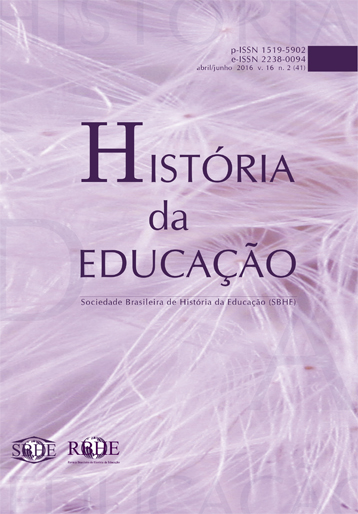Isolated schools and grade-level practices: Hybrid experiments (1929–1949).
Abstract
We present research results concerning the types of primary schools in the municipality of Iguaçu, Rio de Janeiro, from 1929 to 1949. By analyzing school attendance maps—a state tool for school inspections—it was possible to reconstruct a profile of primary schools in the region. The isolated school was a dominant type of school organization in both rural and urban areas of the municipality. These schools, however, had a plurality of arrangements regarding shifts, teachers, students, grade levels, and classes, revealing a diversity of experiences and intercessions with the perspectives of educational levels and schools operating modes and conditions.
Downloads
Os direitos autorais pertencem exclusivamente aos autores. Os direitos de licenciamento utilizados pelo periódico consistem na licença Creative Commons Attribution 4.0 (CC BY 4.0): são permitidos o acompartilhamento (cópia e distribuição do material em qualqer meio ou formato) e adaptação (remix, transformação e criação de material a partir do conteúdo assim licenciado) para quaisquer fins, inclusive comerciais.
Recomenda-se a leitura desse link para maiores informações sobre o tema: fornecimento de créditos e referências de forma correta, entre outros detalhes cruciais para uso adequado do material licenciado.













